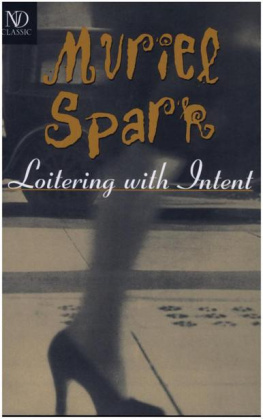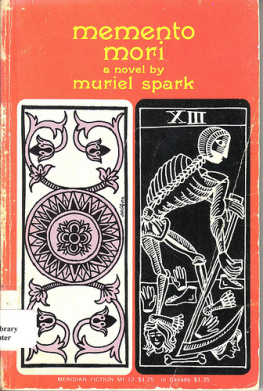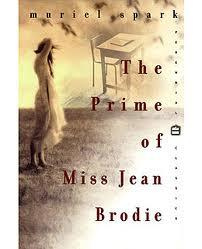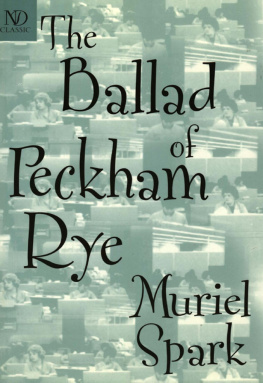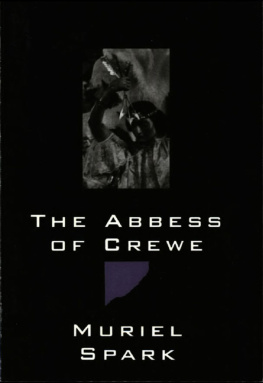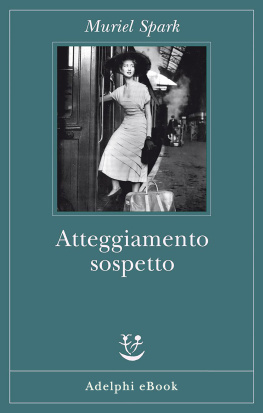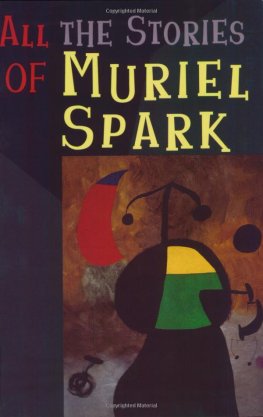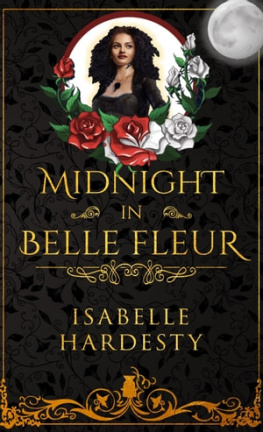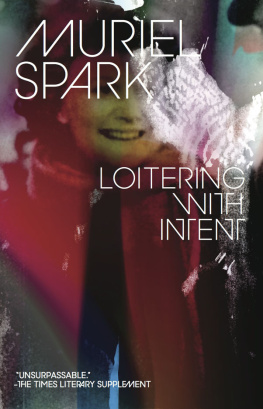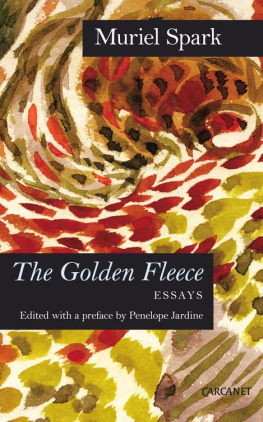Muriel Spark
LOITERING WITH
INTENT
1981
ACKNOWLEDGMENT
The quotations from the Life of Benvenuto
Cellini are gratefully taken from Miss Anne
Macdonells translation in the Everyman
edition.
Chapter One
One day in the middle of the twentieth century I sat in an old graveyard which had not yet been demolished, in the Kensington area of London, when a young policeman stepped off the path and came over to me. He was shy and smiling, he might have been coming over the grass to ask me for a game of tennis. He only wanted to know what I was doing but plainly he didnt like to ask. I told him I was writing a poem, and offered him a sandwich which he refused as he had just had his dinner himself. He stopped to talk awhile, then he said good-bye, the graves must be very old, and that he wish me good luck and that it was nice to speak to somebody.
This was the last day of a whole chunk of my life but I didnt know that at the time. I sat on the stone slab of some Victorian grave writing my poem as long as the sun lasted. I lived nearby in a bed-sitting-room with a gas fire and a gas ring operated by pre-decimal pennies and shillings in the slot, whichever you preferred or had. My morale was high. I needed a job, but that, which should have been a depressing factor when viewed in cold blood, in fact simply was not. Neither was the swinishness of my landlord, a Mr Alexander, short of stature. I was reluctant to go home lest he should waylay me. I owed him no rent but he kept insisting that I should take a larger and more expensive room in his house, seeing that I had overcrowded the small single room with my books, my papers, my boxes and bags, my food stores and the evidence of constant visitors who stayed to tea or came late.
So far I had stood up to the landlords claim that I was virtually living a double-room life for single-room pay. At the same time I was fascinated by his swinishness. Tall Mrs Alexander always kept in the background so far as the renting of rooms was concerned, determined not to be confused with a landlady. Her hair was always glossy black, new from the hairdresser, her nails polished red. She stepped in and out of the house with a polite nod like another, but more superior, tenant. I fairly drank her in with my mind while smiling politely back. I had nothing whatsoever against these Alexanders except in the matter of their wanting me to take on a higher-priced room. If he had thrown me out I would still have had nothing much against them, I would mainly have been fascinated. In a sense I felt that the swine Alexander was quite excellent as such, surpassingly hand-picked. And although I wanted to avoid him on my return to my lodging I knew very well I had something to gain from a confrontation, should it happen. In fact, I was aware of a dmon inside me that rejoiced in seeing people as they were, and not only that, but more than ever as they were, and more, and more.
At that time I had a number of marvellous friends, full of good and evil. I was close on penniless but my spirits were all the more high because I had recently escaped from the Autobiographical Association (non-profit-making) where I was thought rather mad, if not evil. I will tell you about the Autobiographical Association.
Ten months before the day when I sat writing my poem on the worn-out graves of the dead in Kensington and had a conversation with the shy policeman, Dear Fleur, came the letter.
Dear Fleur. Fleur was the name hazardously be-stowed at birth, as always in these cases before they know what you are going to turn out like. Not that I looked too bad, it was only that Fleur wasnt the right name, and yet it was mine as are the names of those melancholy Joys, those timid Victors, the inglorious Glorias and materialistic Angelas one is bound to meet in the course of a long life of change and infiltration; and I once met a Lancelot who, I assure you, had nothing to do with chivalry.
However all that may be, Dear Fleur, went the letter. I think Ive found a job for you! The letter went on, very boring. It was a well-wishing friend and I have forgotten what she looked like. Why did I keep these letters? Why? They are all neatly bundled up in thin folders, tied with pink tape, 1949, 1950, 1951 and on and on. I was trained to be a secretary; maybe I felt that letters ought to be filed, and Im sure I thought they would be interesting one day. In fact, they arent very interesting in themselves. For example about this time, just before the turn of the half-century, a book-shop wrote to ask for their money or they would take further steps. I owed money to bookshops in those days; some were more lenient than others. I remember at the time thinking the letter about the further steps quite funny and worth keeping. Perhaps I wrote and told them that I was quite terrified of their steps approaching further, nearer, nearer; perhaps I didnt actually write this but only considered doing so. Apparently I paid them in the end for the final receipt is there, 5.8.9. I always desired books; nearly all of my bills were for books. I possessed one very rare book which I traded for part of my bill with another book-shop, for I wasnt a bibliophile of any kind; rare books didnt interest me for their rarity, but for their content. I borrowed frequently from the public library, but often I would go into a bookshop and in my longing to possess, let us say, the Collected Poems of Arthur Clough and a new Collected Chaucer, I would get into conversation with the bookseller and run up a bill.
Dear Fleur, I think Ive found a job for you!
I wrote off to the address in Northumberland setting forth my merits as a secretary. Within a week I got on a bus to go and be interviewed by my new employer at the Berkeley Hotel. It was six in the evening. I had allowed for the rush hour and arrived early. He was earlier still, and when I went to the desk to ask for him he rose from a nearby chair and came over to me.
He was slight, nearly tall, with white hair, a thin face with high cheekbones which were pink-flushed, although otherwise his face was pale. His right shoulder seemed to protrude further than the left as if fixed in the position for shaking hands, so that his general look was very slightly askew. He had an air which said, I am distinguished. Name, Sir Quentin Oliver.
We sat at a table drinking dry sherry. He said, Fleur Talbotare you half French?
No. Fleur was just a name my mother fancied.
Ah, interesting Well now, yes, let me explain about the undertaking.
The wages he offered were of 1936 vintage, and this was 1949, modern times. But I pushed up the staring price a little, and took the job for its promise of a totally new experience.
Fleur Talbot he had said, sitting there in the Berkeley. Any connection with the Talbots of Talbot Grange? The Honourable Martin Talbot, know who I mean?
I said, No.
No relation to them. Of course there are the Talbots of Findlays Refineries. Those sugar people. Shes a great friend of mine. Lovely creature. Too good for him if you ask my opinion.
Sir Quentin Olivers London flat was in Hallam Street near Portland Place. There I went to my job from nine in the morning till five-thirty in the afternoon, passing the B.B.C. edifice where I always hoped to get a job but never succeeded.
At Hallam Street every morning the door would be opened by Mrs Tims, the housekeeper. The first morning Sir Quentin introduced her to me as Beryl, Mrs Tims, which she in a top-peoples accent corrected to Mrs Beryl Tims, and while I stood waiting with my coat on, they had an altercation over this, he maintaining politely that before her divorce she had been Mrs Thomas Tims and now she was, to be precise, Beryl, Mrs Tims, but in no circumstances was Mrs Beryl Tims accepted usage. Mrs Tims then announced she could produce her National Insurance card, her ration book and her identity card to prove that her name was Mrs Beryl Tims. Sir Quentin held that the clerks employed in the ministries which issued these documents were ill-informed. Later, he said, he would show her what he meant under correct forms of address in one of his reference books. After that, he turned to me.

